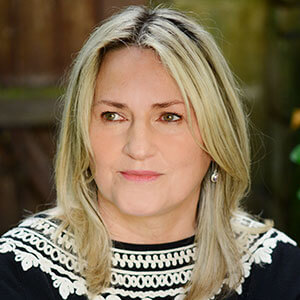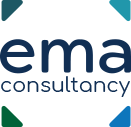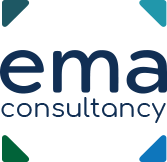How to achieve a great interview

You’ve got an interview. Great news. You’ve identified an opportunity you’re suited to and gained their attention with your CV.
Don’t let yourself down at the interview, even though you might feel daunted, says Anne Elliott.
With preparation and thought, your perfect interview is right ahead of you.
This article highlights how to get yourself ready for the big day and how to handle the conversation so you shine brightly.
Don’t skimp on your preparation
You’ll have heard the phrase: “Fail to prepare and you prepare to fail.” It couldn’t be truer for an interview.
Prepared, you’ll perform better and feel more confident when the day arrives. Plus, you’ll know you did your best, whatever the outcome.
You probably started preparing before creating your successful CV. So, go back and review your thoughts.
Did you discover your strengths and what drives you?
Were you clear on the skills you offer?
Did you identify the company’s challenges and how you’re equipped to help?
Are you clear on your worth – can you demonstrate it?
I wrote an article on how to be more strategic about your CV. You’ll find it here.
Go deep
Now you’re up to speed, delve further to learn more about the company.
Spend plenty of time reading their website and any additional online presence.
Are you clear on their activities?
Have you identified their core audience?
What does their character feel like, and does it match yours?
What’s their latest news?
Most businesses are on LinkedIn these days, too. That might be a company page or individual profile pages for key people. Have a good look at who you’d be working with.
What’s their past work experience?
What are they posting about?
Whose posts are they commenting on?
Beyond the company and the people, consider the role you’ve applied for. Where do you match it and where do you lack? Would you welcome training to improve your capability for the role? It’s important to be aware of your weaknesses as well as your strengths.
You could ask a trustworthy friend or colleague to give their honest view on your thoughts. Do they see you in the same light? What can you learn from their feedback?
Can you phone the recruitment agency or an informal contact ahead of the interview? Go ahead. They’ll be happy to help you. But do prepare for the call so you don’t waste their time. Know what you want to learn from them.
Like everything, practice makes perfect. So, put yourself in front of a mirror, or record yourself on Zoom. Better still, find someone to practice typical questions and answers with. If you’ve done this, you’ll feel more comfortable on the day.
Virtual or face to face?
Interviews can be online or face-to-face these days. It varies by company and their proximity to you.
If your interview is online, get familiar with the technology – the platform that’ll host it, plus your own equipment. Generally, we’re set up for video calls these days, but think about your background. Also, ensure you’ll have a quiet place where you won’t be disturbed.
Should you be meeting face-to-face, research where you’re going. What will the traffic be like at that time and where will you park? Leaving these details to the last minute adds to your nerves.
Think about what you’ll wear too – even on a video call. Try it on beforehand and ensure it’s clean.
On the day
It goes without saying to be on time. Even if you’re meeting online, enter the virtual waiting room five minutes early.
Use those waiting minutes to focus your mind. If you’re meeting face-to-face, I recommend standing in the waiting room and checking your body language. Breath deeply and slowly if you need to keep nerves in check.
Whatever you do, don’t have your head in your phone when you’re called. It sets the tone before you’ve said a word. You’ll feel on the back foot, too.
Do handshakes matter these days? Definitely. Avoid a boneshaker at all costs.
From the word go, be yourself. You want to build a rapport and show your personality too. Be happy to chat about the journey or the weather first, they’re helping you settle in.
CART answers
It’s usual to kick off with an easy question. Use the opportunity well. You might draw on your elevator pitch or provide an overview of your relevant experience and what motivates you. You’re setting the scene for the rest of the interview.
You can answer many questions using the CART framework. It helps to practice this beforehand.
Context – Set the scene for your answer. What role did you have? What was going on?
Actions – What did you do and why?
Results – What did you achieve? What difference did you make?
Takeaways – What did you learn from the experience? Could you have done better?
CART ensures you answer questions fully, while highlighting what matters to them as they assess you.
Also be prepared for competency-based questions and consider how you’d sum up your development needs, if asked.
Importantly, don’t leave your interviewer thinking “So what?”. They’ve read your CV, so now you need to highlight experiences and skills that make you stand out further. What have you achieved beyond your general job role? Have you contributed to any initiatives that help you shine?
Don’t leave your interviewer feeling indifferent about you.
Finally, remember your interview is a two-way conversation. You’re also assessing them. Do you like the company and the people you’d work with? Does it match your values? Is the role as you expected? You’ll be happier when you can answer yes to these questions.
Got it?
The day comes when you find out whether you succeeded or failed. Whatever the outcome, it’s the perfect time for constructive feedback.
If you were successful, ask them why? How did you stand out against the competition? And where could you have been better still?
If you didn’t succeed, seek to understand why. Most recruitment agencies and companies are happy to give feedback when asked constructively. Don’t use the conversation to persuade them they’re wrong. Be humble and listen. Ask frank questions and hear their advice.
Every interview is a learning opportunity, whatever the outcome. Make yours a positive experience that helps you grow. By doing so, you’re more likely to be successful in the next interview you have, or soon after.




